CSW 66 side event
Tuesday, 22 March, 14:00-15:30 CET//09:00-10:30 EDT – (90 min)
Sign language/closed captions provided
Interpretation in French and Spanish
People with disabilities make up 15% of the global population. Adolescent girls with disabilities face compounding discrimination, including those relating to gender- and sexual-based violence, which has been exacerbated due to the COVID-19 pandemic. Yet, disability has low priority within global child and adolescent health agendas.
This event will share evidence on the impact and drivers of discrimination, as well as policy approaches and practical improvements to improve equity and reduce exclusion, supporting girls to live their lives to their full potential and highlighting the importance of including women and girls with disabilities in the pandemic recovery.
This 90-minute discussion will highlight lived experiences, as well as current challenges and policy opportunities for adolescent girls including those with disabilities, outlining critical next steps to promote their inclusion in pandemic response and recovery plans particularly.
Watch the event
Agenda
| Segment /Content | Speaker/Moderator |
|---|---|
Opening remarks: importance to mainstream disability inclusion into our global health work |
|
Remarks: disability inclusion to achieve UHC and SDGs |
|
Panel discussion | |
Adolescent/youth experiences |
|
Government’s efforts improving inclusion as regards family planning/SRHR, in humanitarian contexts |
|
Experience as a mainstream organizations in disability inclusive SRHR focusing on partnership |
|
Experience as a disability focused organization in disability inclusive SRHR focusing on partnership |
|
Recommendations for the inclusion of adolescent girls with disabilities |
|
Inclusion of women and girls with disabilities in pandemic/COVID-19 recovery plans – challenges, opportunities, and sustained actions |
|
Closing remarks |
|
Speakers
Maziko Matemvu
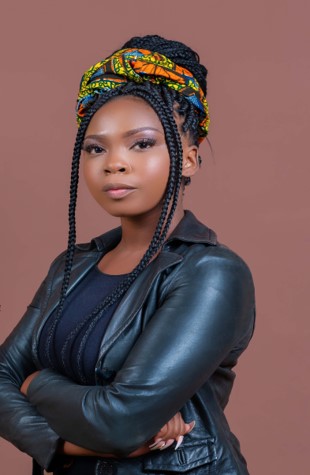 Maziko Matemvu, Moderator, is a development and global health practitioner. She has extensive experience in developing and reviewing programmes, advocacy plans and strategies that empower adolescents and young people. Maziko holds a Bachelor of
Social Sciences with a major in political leadership. She is the Vice President of the Young Feminist Network and currently works as a Health Coordinator for MIET AFRICA, a South African non-governmental organization focused on strengthening education
systems in the region. Maziko hosts a youth-focused television show in Malawi called “21st generation” and is the President and founder of Uwale, a media group that uses media and artivism to raise awareness of social injustices. A seasoned
speaker and moderator, she is also a spoken word poet, artist and film-maker.
Maziko Matemvu, Moderator, is a development and global health practitioner. She has extensive experience in developing and reviewing programmes, advocacy plans and strategies that empower adolescents and young people. Maziko holds a Bachelor of
Social Sciences with a major in political leadership. She is the Vice President of the Young Feminist Network and currently works as a Health Coordinator for MIET AFRICA, a South African non-governmental organization focused on strengthening education
systems in the region. Maziko hosts a youth-focused television show in Malawi called “21st generation” and is the President and founder of Uwale, a media group that uses media and artivism to raise awareness of social injustices. A seasoned
speaker and moderator, she is also a spoken word poet, artist and film-maker.
Dr Gillian Turner
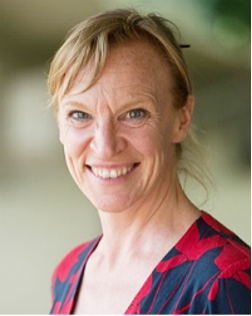 Dr Gillian Turner is a senior health adviser in the policy division of the UK Department for International Development, focusing on health strategy. She was formerly the policy lead for maternal, neonatal and child health and led the UK engagement
for health in the sustainable development goals. Prior to joining DFID she was the health economist for TB at the Liverpool School of Tropical Medicine, focusing on TB and poverty and inequities and was also a consultant in health systems,
maternal health, HIV, TB, malaria and microfinance. She has worked on these and other health issues in many countries in Africa and Asia and at global level for the past 20 years. Her key interest through her current and previous
roles has been to improve health outcomes among the poor through addressing inequities in access to quality health services.
Dr Gillian Turner is a senior health adviser in the policy division of the UK Department for International Development, focusing on health strategy. She was formerly the policy lead for maternal, neonatal and child health and led the UK engagement
for health in the sustainable development goals. Prior to joining DFID she was the health economist for TB at the Liverpool School of Tropical Medicine, focusing on TB and poverty and inequities and was also a consultant in health systems,
maternal health, HIV, TB, malaria and microfinance. She has worked on these and other health issues in many countries in Africa and Asia and at global level for the past 20 years. Her key interest through her current and previous
roles has been to improve health outcomes among the poor through addressing inequities in access to quality health services.
Andrea Pregel
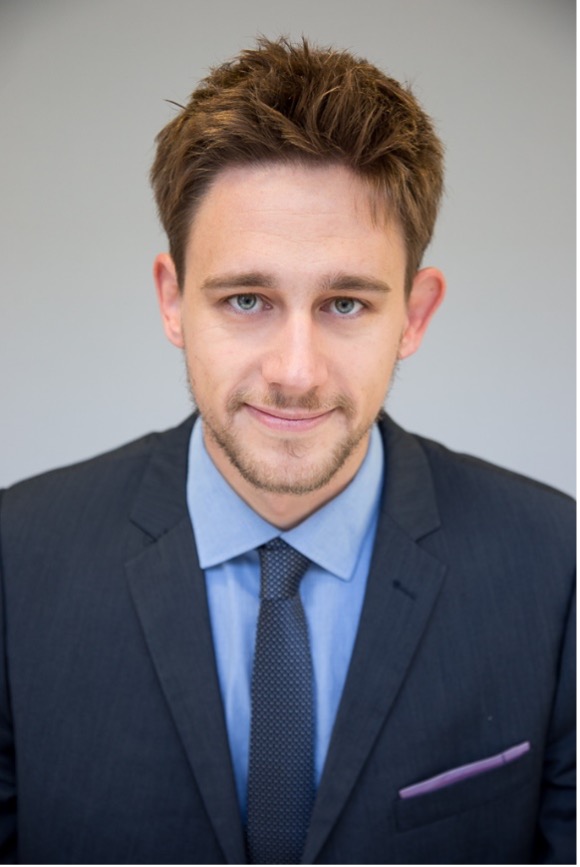 Andrea Pregel is an inclusive development professional with ten years of experience in disability inclusion, Deaf culture, gender equity, intersectionality, global development, global health and inclusive education across Asia, Africa and Europe.
Andrea currently works at Sightsavers as a Global Technical Lead for Inclusive Health, and has strategic and technical oversight of the inclusive health programme portfolio across South Asia and Sub-Saharan Africa. He also co-chairs the Inclusive
Health Task Group of the International Disability and Development Consortium (IDDC), and is a member of the Inclusive Health Working Group of the Global Action on Disability (GLAD) Network.
Andrea Pregel is an inclusive development professional with ten years of experience in disability inclusion, Deaf culture, gender equity, intersectionality, global development, global health and inclusive education across Asia, Africa and Europe.
Andrea currently works at Sightsavers as a Global Technical Lead for Inclusive Health, and has strategic and technical oversight of the inclusive health programme portfolio across South Asia and Sub-Saharan Africa. He also co-chairs the Inclusive
Health Task Group of the International Disability and Development Consortium (IDDC), and is a member of the Inclusive Health Working Group of the Global Action on Disability (GLAD) Network.
In 2014, Andrea co-founded the Global Observatory for Inclusion (GLOBI), a non-profit organisation based in Italy, and he designed and managed the global #DrawDisability campaign on inclusive education, launched in partnership with the United Nations and several international organisations. In the past, he has conducted research in the Deaf community in Malaysia and worked in educational programmes in Iceland with AFS, in Nepal with CESIE, and in Italy with EDI Onlus and Save the Children.
Isidora Guzman
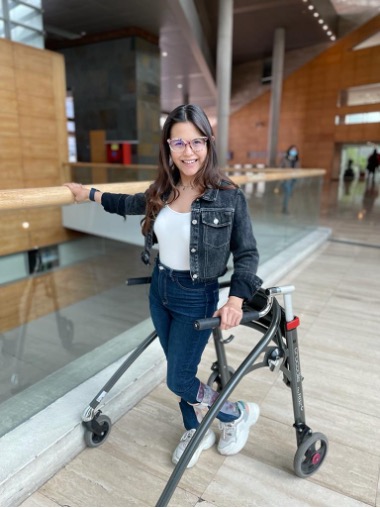 Isidora Guzman is a 17 year old Chilean activist, with spastic diplegia, which is a form of cerebral palsy. Isidora champions inclusion and universal accessibility and has been representing people with disabilities from a very young age. She is
the Founder of "Encuentra tu lugar”, an organization which helps people with disabilities find inclusive and accessible places.
Isidora Guzman is a 17 year old Chilean activist, with spastic diplegia, which is a form of cerebral palsy. Isidora champions inclusion and universal accessibility and has been representing people with disabilities from a very young age. She is
the Founder of "Encuentra tu lugar”, an organization which helps people with disabilities find inclusive and accessible places.
Highlighted as a ‘young changemaker’ by several organizations, she is a Counselor at "We Have to Talk About Chile", an NGO that is part of Fundación Tremendas, and National Gender Youth Activist at UN Women. She is also a former Ambassador for Teleton Foundation and has participated in a national soap opera at 9 - becoming the first child with a disability in Chile to feature in such a role.
Dr. Nurunnahar Begum
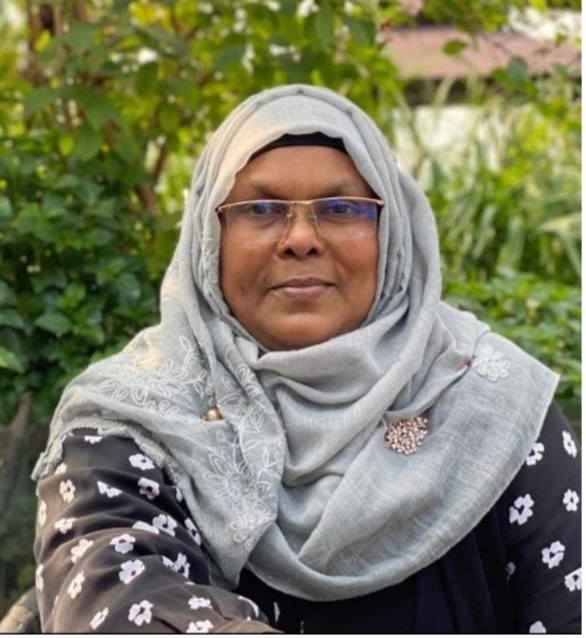 Dr. Nurunnahar Begum is a Line Director, Clinical Contraceptive Services Delivery Program Unit for the Ministry of Health and Family Welfare, Directorate General of Family Planning, Bangladesh. She has more than 30 years in Government service in
Gynae and Obstetrics.
Dr. Nurunnahar Begum is a Line Director, Clinical Contraceptive Services Delivery Program Unit for the Ministry of Health and Family Welfare, Directorate General of Family Planning, Bangladesh. She has more than 30 years in Government service in
Gynae and Obstetrics.
Alessandra Aresu
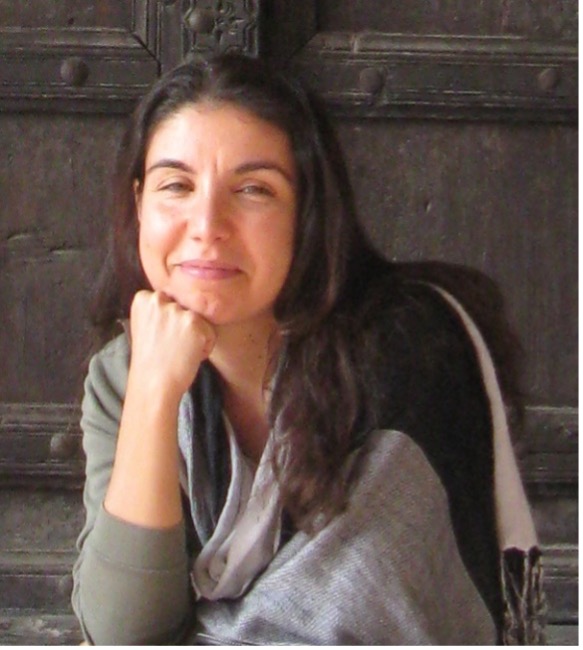 Alessandra Aresu is the Director of the Global Inclusive Health Division at Humanity & Inclusion (HI – also known as Handicap International) and she serves as co-chair of the Inclusive Health Task Group at the International Disability
and Development Consortium (IDDC). She is a disability, gender and age inclusive health specialist with a priority focus on youth and Sexual and Reproductive Health and Rights. She holds a PhD in Gender and Sexuality Education and she is the author
of several articles and book chapters on gender, sexuality and disability.
Alessandra Aresu is the Director of the Global Inclusive Health Division at Humanity & Inclusion (HI – also known as Handicap International) and she serves as co-chair of the Inclusive Health Task Group at the International Disability
and Development Consortium (IDDC). She is a disability, gender and age inclusive health specialist with a priority focus on youth and Sexual and Reproductive Health and Rights. She holds a PhD in Gender and Sexuality Education and she is the author
of several articles and book chapters on gender, sexuality and disability.
Melissa Cockroft
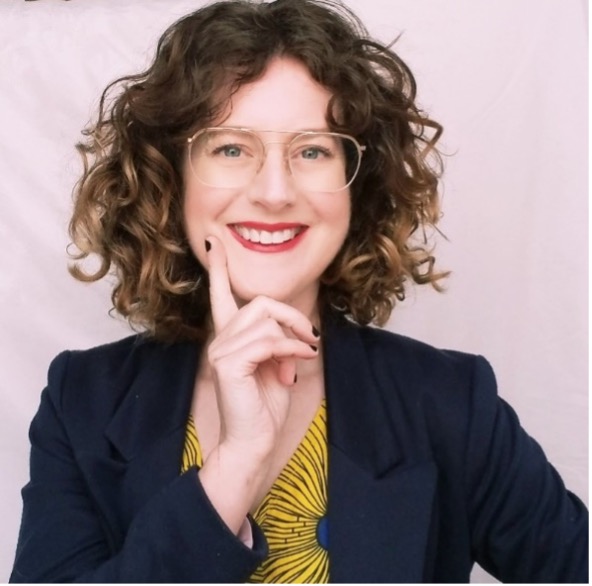 Melissa Cockroft is a sexual and reproductive health technical and programme management specialist with over 15 years’ experience with a focus on family planning, safe abortion, quality of care and social behaviour change communication. She
is currently the Deputy Director for Technical Support on the FCDO funded UK Government’s flagship programme Women’s Integrated Sexual Health (WISH) Lot 2, overseeing technical areas of the programme including disability inclusion, quality
of care and policy and advocacy.
Melissa Cockroft is a sexual and reproductive health technical and programme management specialist with over 15 years’ experience with a focus on family planning, safe abortion, quality of care and social behaviour change communication. She
is currently the Deputy Director for Technical Support on the FCDO funded UK Government’s flagship programme Women’s Integrated Sexual Health (WISH) Lot 2, overseeing technical areas of the programme including disability inclusion, quality
of care and policy and advocacy.
Mary Musa
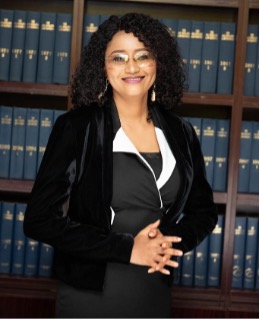 Mary
Musa is a legal practitioner, human resource practitioner and a humanitarian, committed to advocating for the rights of the protected and vulnerable groups in the society. Mary holds a Bachelor of Laws (LLB) from Babcock University and is admitted
to the Nigerian Bar as a Barrister and Solicitor of the Supreme Court of Nigeria. Mary is currently an Associate at Y. C. Maikyau & Co Legal Practitioners, Notary Public and Arbitrators where she doubles as a legal practitioner and a human resources
associate. She manages and ensures a well-defined and strategic human resource structure for maximum organizational growth and result. In addition to her day job, Mary is an ad hoc staff of the subcommittee of the Administration of Criminal Justice
Monitoring Committee (ACJMC) where she serves in the capacity of a human rights lawyer focusing on gender equality and inclusion for the protected groups in the society.
Mary
Musa is a legal practitioner, human resource practitioner and a humanitarian, committed to advocating for the rights of the protected and vulnerable groups in the society. Mary holds a Bachelor of Laws (LLB) from Babcock University and is admitted
to the Nigerian Bar as a Barrister and Solicitor of the Supreme Court of Nigeria. Mary is currently an Associate at Y. C. Maikyau & Co Legal Practitioners, Notary Public and Arbitrators where she doubles as a legal practitioner and a human resources
associate. She manages and ensures a well-defined and strategic human resource structure for maximum organizational growth and result. In addition to her day job, Mary is an ad hoc staff of the subcommittee of the Administration of Criminal Justice
Monitoring Committee (ACJMC) where she serves in the capacity of a human rights lawyer focusing on gender equality and inclusion for the protected groups in the society.
Mary has a passion for philanthropy and advocacy. Her passion is partly informed by her uncommon story as a victim of an extremely traumatizing experience of physical abuse which led to the loss of her sight. Hence, she is very committed to building and sustaining a society where inclusivity is not just talk but deed. She is the president/founder of the MOM Organisation, where she leads a team of passionate minds who come together to advocate for the rights, inclusion, and improvement of the living standard of, women, children and persons with disabilities. She currently serves as the Global Secretary of the Network of Women with Disabilities.
Laverne Jacobs
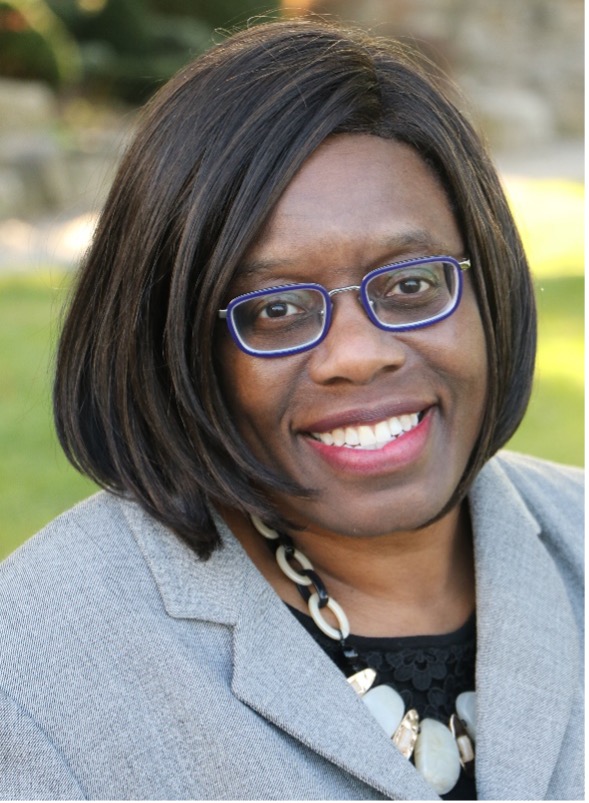 Laverne Jacobs is a law professor, and disability and human rights expert. Over her 20 years as an academic and lawyer, her work has informed legal cases, legislation, and policies. As a person with physical disabilities, and a Black woman, Dr.
Jacobs knows the importance of understanding how barriers are experienced in order to create effective change.
Laverne Jacobs is a law professor, and disability and human rights expert. Over her 20 years as an academic and lawyer, her work has informed legal cases, legislation, and policies. As a person with physical disabilities, and a Black woman, Dr.
Jacobs knows the importance of understanding how barriers are experienced in order to create effective change.
A professor at the University of Windsor since 2007, Dr. Jacobs teaches in the areas of disability law, human rights law, and access to justice. Among her academic achievements and publications, she is lead author of Canada’s first law and disability textbook.
Dr. Jacobs leads several disability rights projects, and is regularly consulted on policy development and debates on law and disability issues. She is Co-director of the Disability Rights Working Group (University of California, Berkeley), and is the Founder and Director of The Law, Disability & Social Change Project (University of Windsor). Dr. Jacobs is also Canada’s first ever candidate for the Committee on the Rights of Persons with Disabilities.
Dr. Jacobs received her LL.B. & B.C.L. from McGill University in Common Law and Civil Law (1999) and Ph.D. from Osgoode Hall Law School, York University (2009). She speaks English and French.
Katherine Guernsey
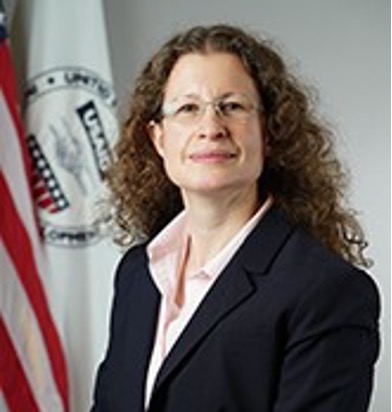 Katherine Guernsey is a Disability Rights Coordinator at USAID where she is responsible for advising the Agency on disability inclusion at both the program and policy levels, and manages the Agency’s Disability Program Fund.
In this capacity, she is working to promote U.S. development assistance that recognizes and respects persons with disabilities and their representative organizations as not only development beneficiaries on an equal basis with others,
but as partners in the design, implementation, and evaluation of projects that impact the lives of the world’s one billion persons with disabilities.
Katherine Guernsey is a Disability Rights Coordinator at USAID where she is responsible for advising the Agency on disability inclusion at both the program and policy levels, and manages the Agency’s Disability Program Fund.
In this capacity, she is working to promote U.S. development assistance that recognizes and respects persons with disabilities and their representative organizations as not only development beneficiaries on an equal basis with others,
but as partners in the design, implementation, and evaluation of projects that impact the lives of the world’s one billion persons with disabilities.
Katherine is a public international lawyer who has dedicated her career to the field of human rights, with an emphasis on disability inclusive development and diplomacy. Much of her work has focused on enhancing the capacity of stakeholders to effectively formulate and implement disability inclusive policies and practices. She was extensively involved in negotiation of the Convention on the Rights of Persons with Disabilities (CRPD), working alongside both governmental and non-governmental delegations. She has authored numerous publications associated with the treaty and international disability law and policy. From 2010-2017, she served as Senior Policy Advisor to the Special Advisor for International Disability Rights, Judith Heumann, at the U.S. Department of State, promoting disability inclusive diplomacy as a priority in U.S. foreign policy.
Katherine received her Master of Laws in international and comparative law from The George Washington University Law School, and her Juris Doctorate and Bachelor of Science in Business Administration degrees from Ohio Northern University.

.png?sfvrsn=6d0e27cd_1)



